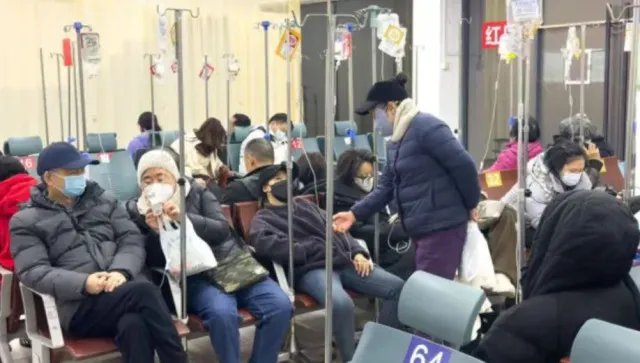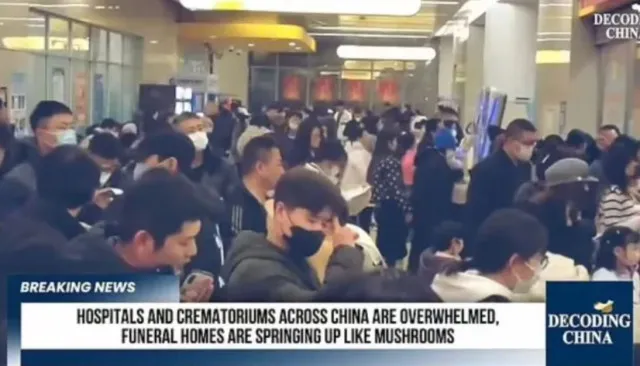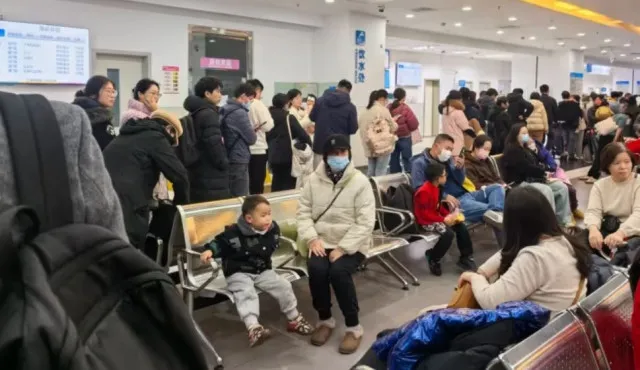A mysterious flu-like illness, human metapneumovirus (HMPV), is causing a stir. Experts warn that this virus, already surging in northern China, has reached the US and UK.
While health officials emphasize caution over panic, understanding HMPV and its hidden symptoms is essential for public safety.
This article delves into the virus’s symptoms, spread, and prevention strategies to help you stay informed and prepared.
HMPV cases surge across China and beyond

HMPV cases have spiked in northern Chinese provinces, particularly among children. The Chinese Center for Disease Control reports rising rates of flu-like illnesses in outpatient visits.
In some northern regions, over 7% of visits are due to these symptoms, a significant increase from previous weeks.
Southern provinces are also seeing a sharp uptick, with outpatient cases rising by 21% compared to the previous week.
In the UK, HMPV has shown a “marked increase” recently. Data indicates more cases this winter than in previous years.

Experts suggest the virus might be spreading more widely due to improved diagnostic methods and increased public awareness.
Understanding HMPV symptoms and risks
HMPV symptoms often mimic those of the common cold. They include cough, nasal congestion, sore throat, and fever. These usually resolve within five days.
However, vulnerable groups such as young children, the elderly, and those with weakened immune systems may develop severe complications.
Severe symptoms include bronchitis, bronchiolitis, pneumonia, shortness of breath, and wheezing. Experts advise seeking medical attention if symptoms worsen or persist.

How HMPV spreads and prevention measures
HMPV spreads through respiratory droplets from coughs and sneezes. Like other winter viruses, it thrives in crowded, poorly ventilated spaces. To minimize risk, follow these precautions:
– Stay in well-ventilated areas.
– Wash your hands regularly.
– Cover your mouth and nose when coughing or sneezing.
– Avoid close contact with sick individuals.
Professor John Tregoning of Imperial College London emphasizes basic hygiene as a key preventive measure. He advises staying hydrated, resting, and avoiding spreading the virus to others.
No Vaccine yet – Treatment focuses on symptom management
Unlike COVID-19 or RSV, there is no vaccine or antiviral treatment for HMPV.
Treatment focuses on alleviating symptoms.

Rest, hydration, and over-the-counter medications can help manage mild cases. In severe instances, medical intervention may be necessary.
Professor Jaya Dantas from Curtin University highlights the importance of protecting vulnerable groups. She recommends testing, masking, and isolating when symptoms arise.
These measures help prevent severe cases, especially in children and the elderly.
In the UK, flu admissions are skyrocketing. Over 4,500 hospital beds were occupied by flu patients daily last week, with 211 in critical care. Experts attribute this surge to increased socializing during the holiday season.
In China, health officials acknowledge the rise in flu-like illnesses as part of annual winter trends.
However, the higher rates compared to previous years have raised concerns. Despite the spike, officials stress that this is not a cause for undue alarm.
Experts urge caution, not panic
While HMPV is not new, its recent surge highlights the need for vigilance. Professor Jonathan Ball of Liverpool School of Tropical Medicine notes that HMPV has circulated in humans for over 50 years. Severe cases remain rare, especially with proper care.
Professor Paul Hunter of the University of East Anglia emphasizes the importance of perspective. Most children contract HMPV by age five, often with mild symptoms. Recurrent infections are common but manageable.